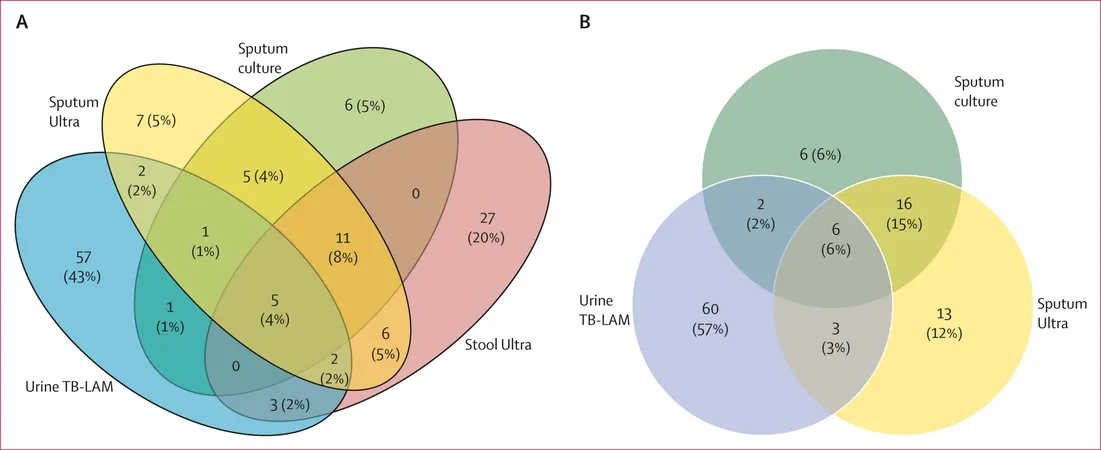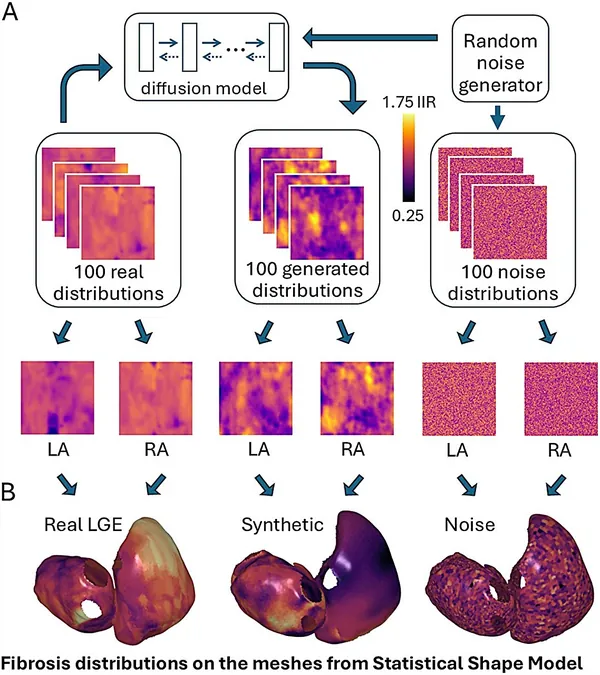
Groundbreaking Molecular Stool Test May Revolutionize Tuberculosis Detection in HIV Patients
2025-04-04
Author: Wei
Recent research has revealed that the Xpert MTB/Ultra molecular diagnostic test, traditionally recommended only for pediatric patients, has the potential to significantly enhance tuberculosis (TB) detection in adults living with HIV. This pivotal finding emerged from the Stool4TB Alliance study, spearheaded by the Barcelona Institute for Global Health (ISGlobal) in collaboration with notable institutions including the Manhiça Health Research Center (CISM), the Research Center Borstel, Makerere University, and others.
This study, published in the esteemed journal *The Lancet Microbe*, could mark a groundbreaking shift in TB diagnostics for high-risk populations. Tuberculosis, caused by the Mycobacterium tuberculosis bacterium, claimed 1.25 million lives in 2023 alone, with a troubling 13% of those occurring among individuals living with HIV. Current diagnostic protocols primarily rely on sputum tests, which often require patients to produce samples through deep coughing—a challenge for many, particularly those with advanced HIV.
Despite the World Health Organization's (WHO) endorsement of molecular sputum tests and urine antigen detection (TB-LAM) for TB diagnosis in HIV patients, access to these vital tools remains limited globally. Alarmingly, more than half of individuals with advanced HIV struggle to produce sufficient sputum, and even when they do, the concentration of bacteria may be too low to detect.
To counteract these challenges, researchers involved in the Stool4TB project suggested adapting the Xpert MTB/RIF Ultra test, typically used for respiratory samples, to analyze stool specimens. This test is already in use for children who also face difficulties in sputum production.
Conducted across medical centers in Eswatini, Mozambique, and Uganda from December 2021 to August 2024, the study involved 677 HIV-positive participants aged 15 and older who were suspected of having TB. These patients provided a range of samples, including sputum, urine, stool, and blood, allowing for a comprehensive comparison of diagnostic accuracy.
The Challenge of TB Diagnosis in Vulnerable Populations
George William Kasule, a Ph.D. candidate at ISGlobal and first author of the study, emphasized the heightened risk of pulmonary tuberculosis among those living with HIV, noting the low sensitivity of conventional TB tests as a significant barrier to accurate diagnosis. The diverse sampling in this study enabled comparisons of the Stool Ultra test's performance against a microbiological reference standard comprising three WHO-recommended tests.
Enhanced Sensitivity for Advanced HIV Cases
The results indicated that the stool test achieved a sensitivity of 23.7% and a specificity of 94.0% when compared to the established reference standards. Remarkably, for patients with CD4 counts below 200 cells/µl—which indicates a severe immunocompromised state—the sensitivity increased significantly to 45.5%.
CD4 lymphocytes are critical immune cells affected by HIV, and those with lower counts are at higher risk for opportunistic infections like tuberculosis. The study's findings support using the Stool Ultra test as a complementary diagnostic tool for tuberculosis, particularly in patients with advanced AIDS. Alberto L. García-Basteiro, a researcher at ISGlobal, stated that the Stool Ultra method successfully identified additional TB cases not detected by other tests, suggesting its potential as a game-changer in TB diagnostics.
Importantly, the stool molecular detection proved to be as effective in patients with advanced AIDS as traditional sputum testing, notably confirming TB in cases where respiratory tests yielded negative results. This novel approach showcases the promising future of stool testing in diagnosing tuberculosis, especially when respiratory samples are difficult to acquire or completely unavailable.
As the global health community grapples with the dual threats of HIV and tuberculosis, innovations like the Stool Ultra test might pave the way for more effective and accessible diagnostics, ultimately saving countless lives.





 Brasil (PT)
Brasil (PT)
 Canada (EN)
Canada (EN)
 Chile (ES)
Chile (ES)
 Česko (CS)
Česko (CS)
 대한민국 (KO)
대한민국 (KO)
 España (ES)
España (ES)
 France (FR)
France (FR)
 Hong Kong (EN)
Hong Kong (EN)
 Italia (IT)
Italia (IT)
 日本 (JA)
日本 (JA)
 Magyarország (HU)
Magyarország (HU)
 Norge (NO)
Norge (NO)
 Polska (PL)
Polska (PL)
 Schweiz (DE)
Schweiz (DE)
 Singapore (EN)
Singapore (EN)
 Sverige (SV)
Sverige (SV)
 Suomi (FI)
Suomi (FI)
 Türkiye (TR)
Türkiye (TR)
 الإمارات العربية المتحدة (AR)
الإمارات العربية المتحدة (AR)